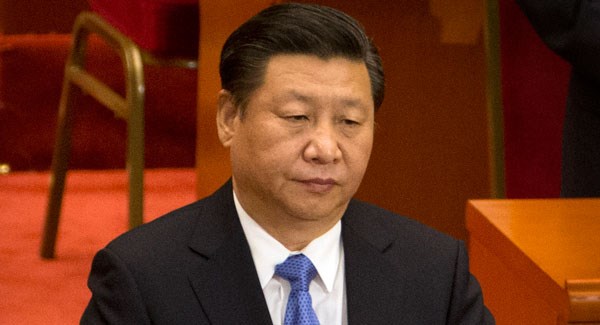China’s economy is expected to take a severe beating due to the novel coronavirus and experts estimate that the country’s GDP will have to be revised under 5% which will have severe consequences for the Xi Jinping administration. This comes at a time when Jinping’s ambitious project Belt and Road Initiative is failing to take off despite the massive investment by China with Indonesia being the latest country where China’s BRI is facing a massive setback.
The much-hyped Belt and Road Initiative is just a tool of the Chinese Communist Party to colonise the poor nations by giving them a huge amount of loans which they can’t pay back and hence trapping them in the infamous Chinese debt trap. China in return takes over a port or an airport of the defaulting country with case in point being the Maldives and Sri Lanka.
After the initial frenzy, the BRI is facing a massive backlash in many countries like Kenya and Maldives with many governments looking to either renegotiate the terms of the deal or completely backing out.
In Indonesia, more than 240 civil society organisations urged the Indonesian government to investigate the “extremely suspicious” death of an activist who opposed the building of a hydropower dam seen as key to China’s Belt and Road Initiative in the country. Environmental groups — including Friends of the Earth and Greenpeace, as well as several Indonesian and Asian non-governmental organisations — say the $1.6bn Batang Toru dam being built on the island of Sumatra could lead to the extinction of a species of the orang-utan.
Indonesia witnessed a simmering sentiment against the BRI ever since Golfrid Siregar, an Indonesian environmental lawyer, was found beaten and abandoned on the side of a road on Sumatra in October last year and he succumbed to his injuries three days later. It is believed that Siregar turned out to be a thorn in China’s BRI and had to pay the ultimate price for the same. Siregar who worked as a legal manager at Walhi North Sumatra, an environmental NGO was involved in a lawsuit against PT North Sumatera Hydro Energy, a majority Chinese-owned company that is responsible for the dam project. It is important to note that the Bank of China is financing the project. The case claims PT NSHE violated at least three Indonesian laws.“Although police claim his death was the result of a traffic accident, there are a number of irregularities and suspicious circumstances which suggest his death may have occurred as retaliation for his environmental and human rights advocacy work,” the groups allege in the letter which was sent to various Indonesian embassies.
Not just the dam, but several BRI projects have run into rough weather in Indonesia as China’s badly managed projects seem to be biting the dust. The flagship BRI project in Indonesia, a $6bn high-speed rail project that is intended to link the capital Jakarta with Bandung 140km away, has run into chronic delays and controversies over costs and land acquisition. China has often been accused of funding projects without considering the environment or social impact of the projects as the area where the dam is scheduled to be built is thought to be crucial to the survival of the Tapanuli orang-utan, classified as a critically endangered species by the International Union for Conservation of Nature.
Indonesia Vice President Jusuf Kalla touted 28 projects with a total price tag of US$91 billion to be financed under the BRI. Indonesia is witnessing a widespread sentiment against BRI as they fear a Chinese colonisation. BRI has been facing a plethora of problems as Chinese projects have run into multiple delays.
In August 2018, Malaysia’s newly elected Prime Minister Mahathir Mohamad cancelled more than $20 billion in Belt and Road projects for railway and pipelines, and Pakistan lopped another $2 billion off plans for a railway following a decision in 2017 to cancel a $14 billion dam project, citing financial concerns. Recently, Nepal also cancelled its dam project with Sierra Leone announcing its plans to drop an airport project over debt concerns.
China’s attempt to revitalise the Silk Route is facing stiff resistance in Central Asia. As per a report by Asia Times, “In September 2019, Bishkek (Capital of Kyrgyzstan) shopkeepers and farmers tried to protest. They were quickly dispersed by China-friendly authorities, while local media maintained a blackout of the event – for protest is not the official narrative of the Chinese influx.” The countries in Central Asia- Kyrgyzstan and Tajikistan are suffering from “debt distress”, revealed a report by IMF-affiliated Center for Global Development. According to the report, these countries owe 41 and 53 per cent of their debt to China. China has planned 1.9 billion dollars rail system in Kazakhstan capital Nur-Sultan, which has gone haywire due to protest from locals. There are more than 30,000 Chinese immigrants in the country. The Kazakh government has arrested locals for “anti-China protesters.” Kazakhstan shares 3,300 km border with China’s Xinjiang province and many families have relatives in the province. The Chinese government has carried out all kinds of anti-Human activities in Xinjiang province, including organ trafficking, forced sexual relationship, and bride trafficking.




















